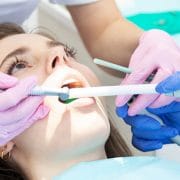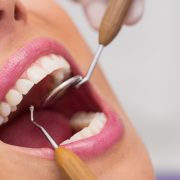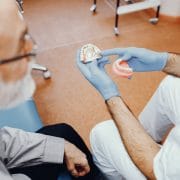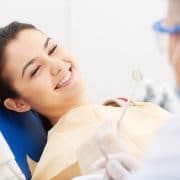Your Child Is Afraid of the Dentist? What You Can Do
Lots of kids have feelings of trepidation about visiting the dentist. Some children feel this way because they’ve picked up on fears from their friends. Other kids are just shy.
If your child has some fears about going to see the dentist, you can take action to make visiting the dentist in Medina, OH a more positive experience. By helping your child to develop a more positive view of the dentist, you can help set up your little one to have good oral hygiene into adulthood. Here’s what you can do to make a difference.
Talk Positively About the Dentist
Your child will take notice of the way you talk about the dentist. If you say good things about the dentist, then your child will have more positive associations with the dentist. Say good things about your visits to the dentist – both before and after. Make a point of saying these things in front of your child to ensure they hear you.
Play “Dentist”
Children often work through their fears by playing out stressful experiences. You can show that visiting the dentist is a good experience by playing “dentist office” with your child.
Pretend to be the dentist, and have your child be the patient. Show your child the way the dentist will look at their mouth and compliment their teeth. If your child wants to take a turn being a dentist, let them!
Read Books About the Dentist
There are many children’s books about the dentist that show what the experience is like. Reading your child books before taking them to the dentist will help them feel like they know what to expect.
Find a Dentist With Pediatric Experience
When the time comes to make a dental checkup appointment in Medina OH, make an appointment with a dentist who has pediatric experience. Finding a good pediatric dentist will help ensure a good experience.
Pediatric dentists know how to help kids feel comfortable and often have special equipment and even toys that can make the experience better for your child. Not sure which dentists are best?
Call around to the dentists in your area to ask questions about how they handle pediatric patients. Calling around to dentists can help you find a professional that you’re comfortable with.










